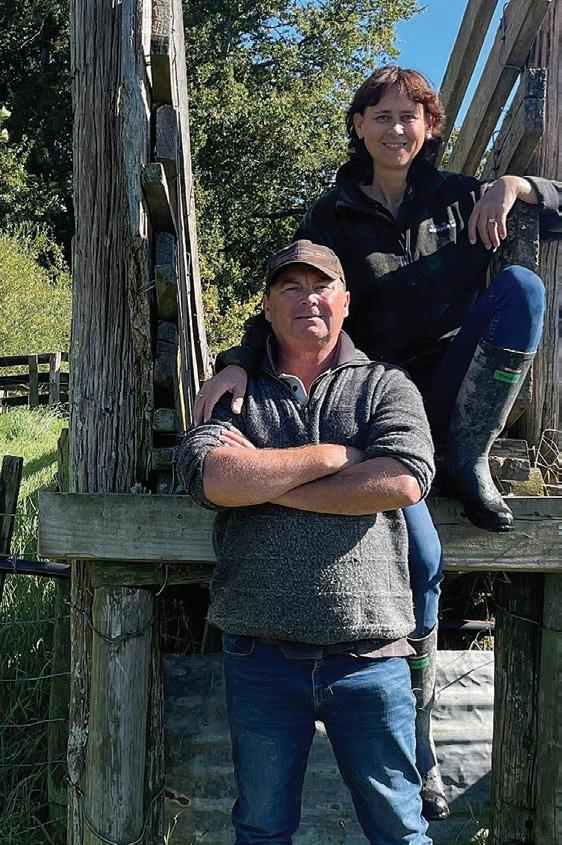
10 minute read
Time to teach the next generation
Southland oat milk producer gets Govt boost
Staff reporter
SOUTHLAND oat milk producer New Zealand Functional Foods will receive $6 million in Government funding to develop a manufacturing facility.
Economic and Regional Development Minister Stuart Nash says plantbased milk alternatives are a fast-growing segment of domestic and international consumer markets.
“The amount spent by Kiwis on plant-based milks almost tripling from $52m in 2017 to $144m in 2019 – so the demand is definitely there.
“We know that oats grow well in Southland and being low in water use, land use and emissions, they are an excellent raw ingredient for an environmentally sustainable alternativemilk option. Producing oat milk locally is a lucrative way to diversify our strength as a quality food producer.”
The investment will help provide the capital needed by New Zealand Functional Foods to build a specialised, largescale processing plant at Makarewa, with capacity for producing up to 80m litres of plant-based milk a year.
The money comes from the Regional Strategic Partnership Fund and Nash says it’s part of the Government strategy to develop a low-emissions, highly-skilled economy that responds to global demands.
“I am confident that this new facility will add to the reputation of Southland and New Zealand as a real player in the sustainable food and beverage sector,” Nash says. FARMERS WEEKLY – farmersweekly.co.nz – July 18, 2022 11 Time to teach the next generation
REWARDING: Marie Burke, picture here with husband Rob, says Farmer Time is a great programme and she really encourage fellow farmers to sign up.
FARMERS are being sought for a new initiative that will give primary and intermediate school pupils a better understanding of food production.
Farmer Time sees farmers link up with classrooms through video call technology to talk about growing food and fibre.
Pupils can regularly chat live with their matched farmer, gaining an understanding of farming across the seasons and providing real-world examples of what they’re learning during the school year.
Beef + Lamb Inc chief executive Kit Arkwright is keen to see food producers from all sectors get involved.
“Farmer Time puts actual farmers in front of children and gives them genuine insights into how our food is being produced. The feedback from both teachers and farmers has been incredible.”
A pilot programme, which involves eight farmer-teacher pairings across six schools with approximately 184 pupils, ran across term one, with many pairing staying with the programme in term two.
Marie Burke, a sheep, beef and crop farmer from Tairāwhiti-Gisborne region, is one of the farmers participating in the pilot.
She is paired with a school in Orewa, Auckland.
“Farmer Time is such a great programme and I really encourage fellow farmers to sign up. The teachers and children we’ve been matched with have loved learning about what we do and how we grow food.
“My husband was initially unsure when I first mentioned Farmer Time, but he’s really enjoyed the interactions we’ve had with the class we’re matched with, and is now almost a bigger fan than I am.”
Food producers who want to get involved or find out more information can visit: www. farmertime.co.nz.
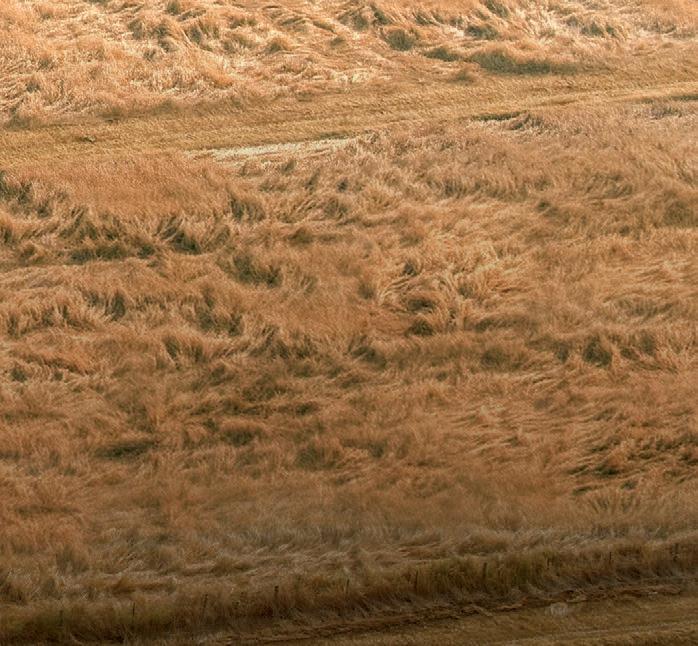

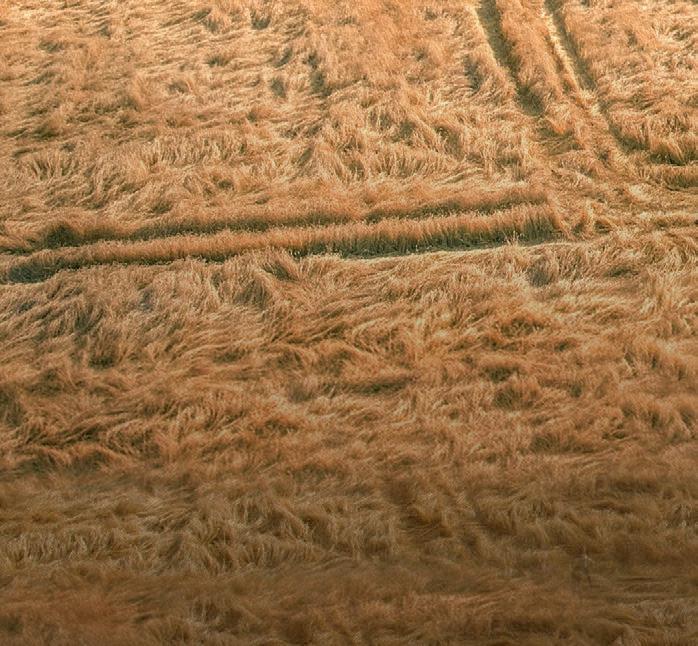
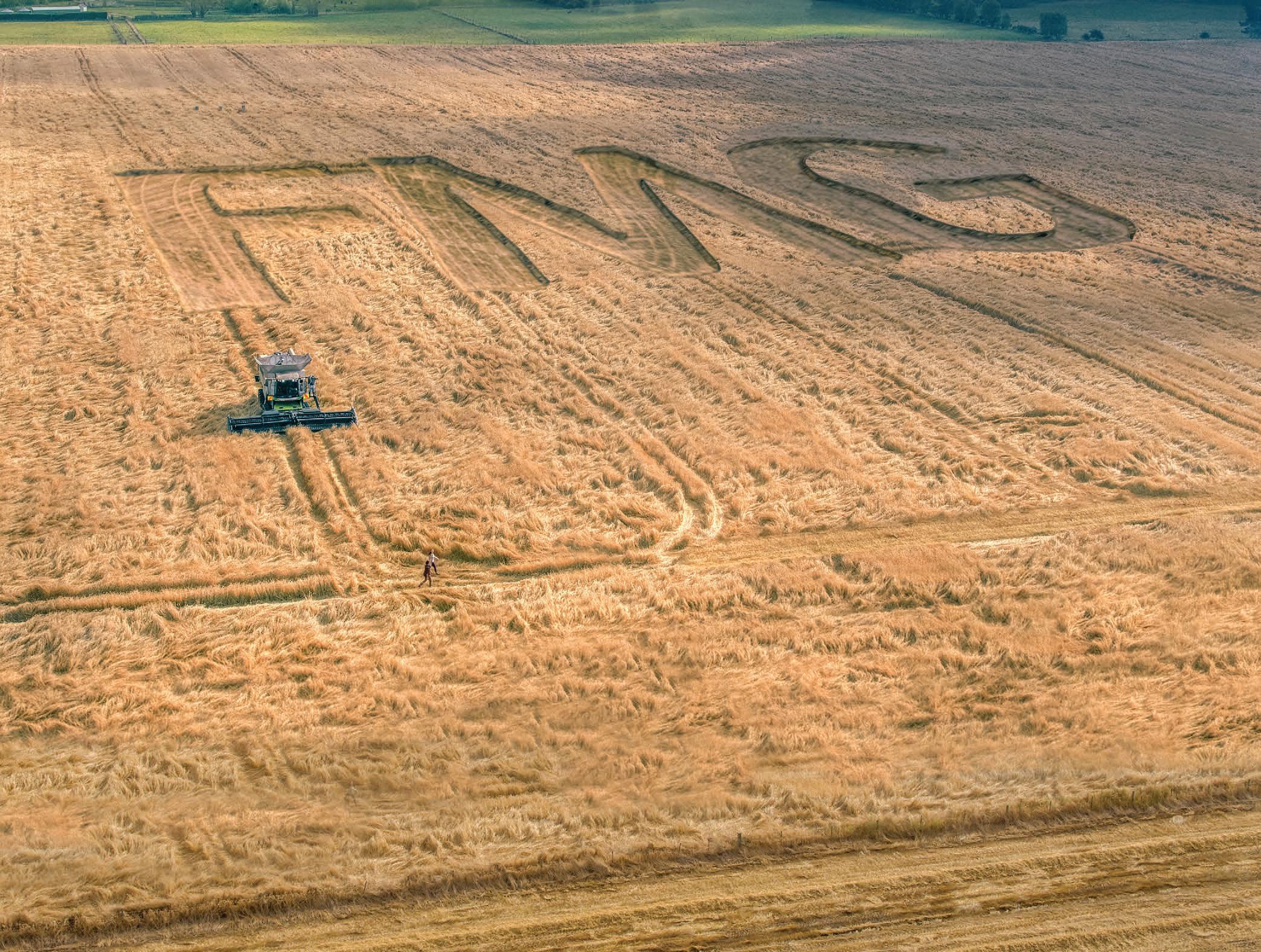
THE RISKS ARE LESS RISKY WHEN WE’RE PART OF THE PICTURE.
Moving ahead means making changes. And that usually comes with a few risks along the way. But with us as your partner, you can progress with more confidence. That’s because FMG offers the kind of specialised advice and knowledge that only comes from working alongside rural New Zealand for generations. To find out more, ask around about us. Or better still, give us a call on 0800 366 466. FMG, your partners in progress.
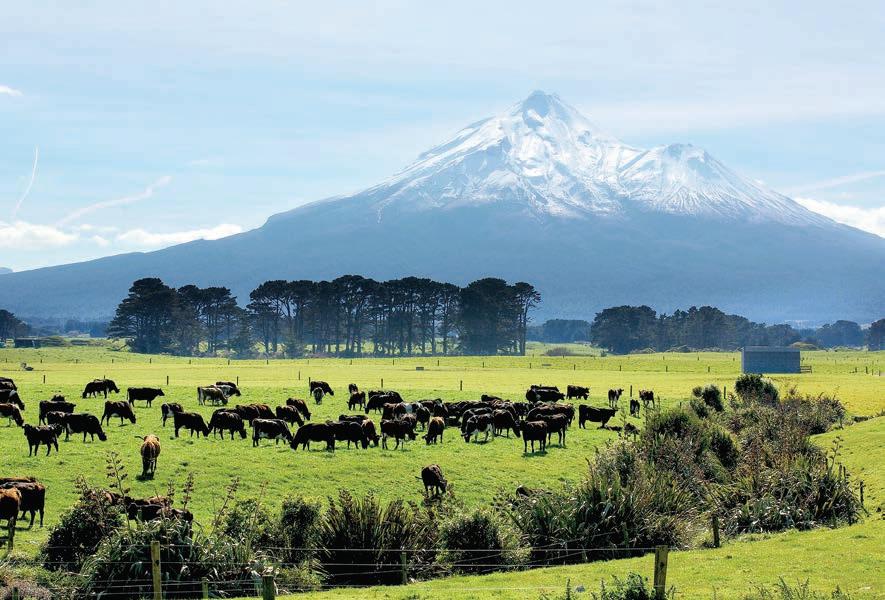
BOTH WAYS: National’s Barbara Kuriger says if farmers are going to pay for emissions they should be rewarded for sequestration as well.
Hands off on-farm carbon capture, says National Party
Neal Wallace neal.wallace@globalhq.co.nz
THE National Party is reserving judgment on He Waka Eke Noa but has taken issue with a Climate Change Commission proposal to change the rules of on-farm sequestration.
Barbara Kuriger, the party’s agriculture spokeswoman, said she is disappointed the commission is recommending the removal of carbon sequestration by farm vegetation from He Waka Eke Noa, instead proposing to combine it with biodiversity and other environmental outcomes in a whole new system.
“If farmers are going to be charged for their onfarm emissions they should also be rewarded for on-farm sequestration either through He Waka Eke Noa or the Emissions Trading Scheme.
“The commission should not overcomplicate things. Its first priority must be emissions,” she said.
Scott Simpson, the party’s climate change spokesman, said the best chance for farmers to manage their emissions is by giving them the widest possible range of solutions.
“The government can make more progress towards emissions targets if it is committed to a principle of rewarding efforts to capture and store carbon,” said Simpson.
He said he supports the intent of He Waka Eke Noa as an industry-wide agreement, calling it “a solution by farmers for farmers”. But he is reserving judgment until he sees its final form and the details of the government’s response.
In the meantime he is concerned about what he said is a “sword of Damocles” hanging over the sector.
“The government says if there is no agreement between the sector and the government then legislation kicks in and the sector will become part of the ETS.”
Agriculture has a role to play in meeting climate change goals, said Simpson, but the ETS is a blunt instrument – and “as of yet we have not seen the colour of the eyes of the government response to He Waka Eke Noa”.




How Get Milking courses work: Our team of practising dairy farmers have created online courses for new dairy assistants. They are designed to build knowledge and confidence fast. No classrooms or student debt; the learning content includes practical videos and easy-to-read course notes explaining the why and the how.
Barbara Kuriger National Party
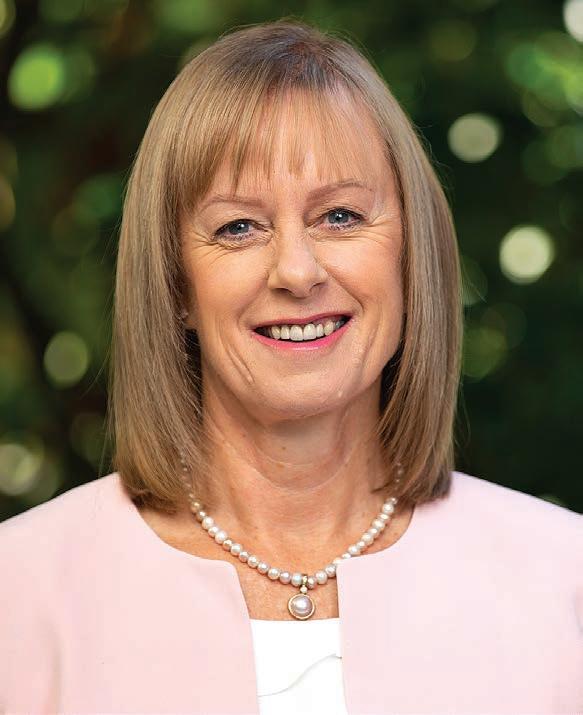
FARMERS WEEKLY – farmersweekly.co.nz – July 18, 2022 15 Evolution not revolution for Overseer
Richard Rennie richard.rennie@globalhq.co.nz
FARMERS and consultants concerned that a review of Overseer may see the software dumped for a new system have been assured by the new chief executive that the longstanding nutrient programme will not be wiped for a replacement.
Jill Gower spent three years as Overseer company secretary before assuming the interim CEO role in February and is now in the permanent role.
With about a month’s worth of review work still to complete, Gower said if a new modelling system is required it will be invented, but she sees no fundamental change in the way Overseer’s proposed reiteration will work.
“Overseer is a particular type of model chosen for a reason, and one both farmers and scientists can use. There is no blank slate we are starting from,” said Gower.
Overseer’s review comes after a stinging report from a scientific panel on the software almost a year ago.
Criticisms of Overseer that prompted the review included its lack of real-time monitoring, use of average climate data, and problems monitoring nitrogen surface flows.
Gower said when considering the real-time criticism, it would not be unreasonable for that to prompt the development of another tool more suited to such an application, one that could be used in parallel with Overseer.
She pointed to work being done by the Ministry for the Environment in this area that may meet that need.
A recurring criticism of Overseer from some scientists has been a need for greater peer review of its workings, with some claiming the software is akin to a “black box” few are privy to.
But Gower said the opportunity to review Overseer’s workings is adequate, and even more so with the development of “Overseer Sci”, a programme developed to analyse Overseer’s model workings, and available to scientists to use.
Meantime during the review process the company has tapped all the key research providers in the country for input on the model. This has included reviewing each area of criticism in last year’s report.
The use of average climate data is now being considered against a daily data-averaging approach. Hydrology concerns on how water transports nutrients are being addressed, and nitrogen leaching estimates are being reviewed.
Some scientists, including Sir Peter Gluckman, have criticised Overseer’s ownership model – it is shared between MPI, the Fertiliser Association and AgResearch – saying it needed to be aligned with a trust or not-for-profit structure.
But Gower said Overseer’s constitution clearly lays out its base intentions, and commercial gain is not the top priority among these.
“The owners work collaboratively with a shared purpose, in a way very much how a not-for-profit would also operate,” she said.
Overseer subscribers have borne a hike in annual subscription rates over the past 12 months that has almost doubled the cost to about $680 a year, an increase Gower reassured them is not going to be repeated. The current rate, she said, represents realistic value given the software’s complexity.
Despite the uncertainty the review brought with it, Gower said subscription growth has continued, with the year ending up as one of the best ever.
She is unsure about the approach councils will take in using Overseer in the future when setting nutrient regulations. At this point there are several regional councils around New Zealand eyeing the review process, having employed Overseer to help set nutrient limits for farming.
She said she takes comfort in the fact that councils have continued to work with Overseer as the review progresses, but acknowledged there could be potential for another model to evolve for council use.
“We have always talked about there being a suite of tools, it does not have to be a binary argument,” said Gower.
Southland Regional Council is one of the few that has not used Overseer in its proposed land and water plan to identify specific targets, rather using Overseer to chart a general direction of travel, something many farm consultants and farmers would prefer to see.
“We see Overseer to be used as a source of information to help establish a farm environment plan, but more like Xero than like the IRD,” said Gower.
The recommended changes to Overseer will be passed to a government technical advisory group for assessment later this year.
Jill Gower Overseer
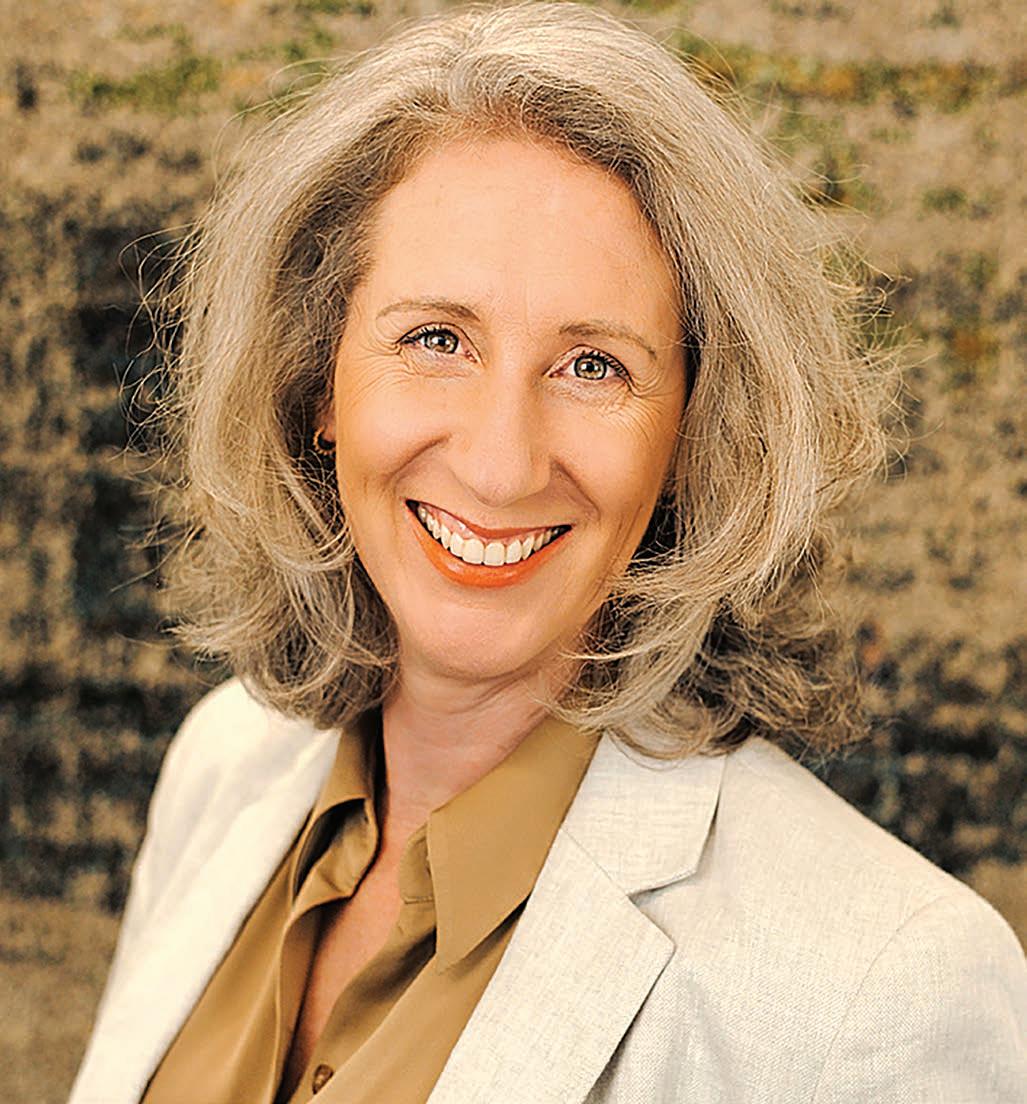
WORTH KEEPING: Overseer chief executive Jill Gower says changes to the software will be incremental, rather than a complete makeover of the system.

ANTHONY GOODWRIGHT
..was considering purchasing another tractor for moving feed. We challenged him to see what he could do in a new JCB SERIES III.
Here’s what he said...

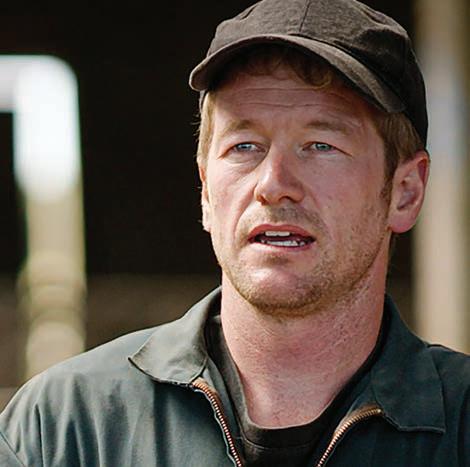
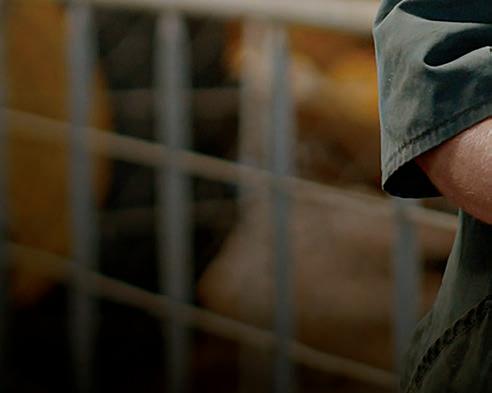
“REALLY SURPRISED HOW EFFICIENT IT IS.”

We dropped off a brand new JCB SERIES III AGRI SUPER to show Anthony Goodwright of Southland how much more efficient, versatile, manoeuvrable and fast the JCB is. With vast amounts of baleage across three family farms to load and stack, Anthony, a proficient operator in any machine, was easily convinced. By the end of the second day with the JCB, he was a committed fan.
WHAT COULD YOU DO IN A JCB SERIES III LOADALL?
SEE THE FULL STORY & MORE INFO AT


